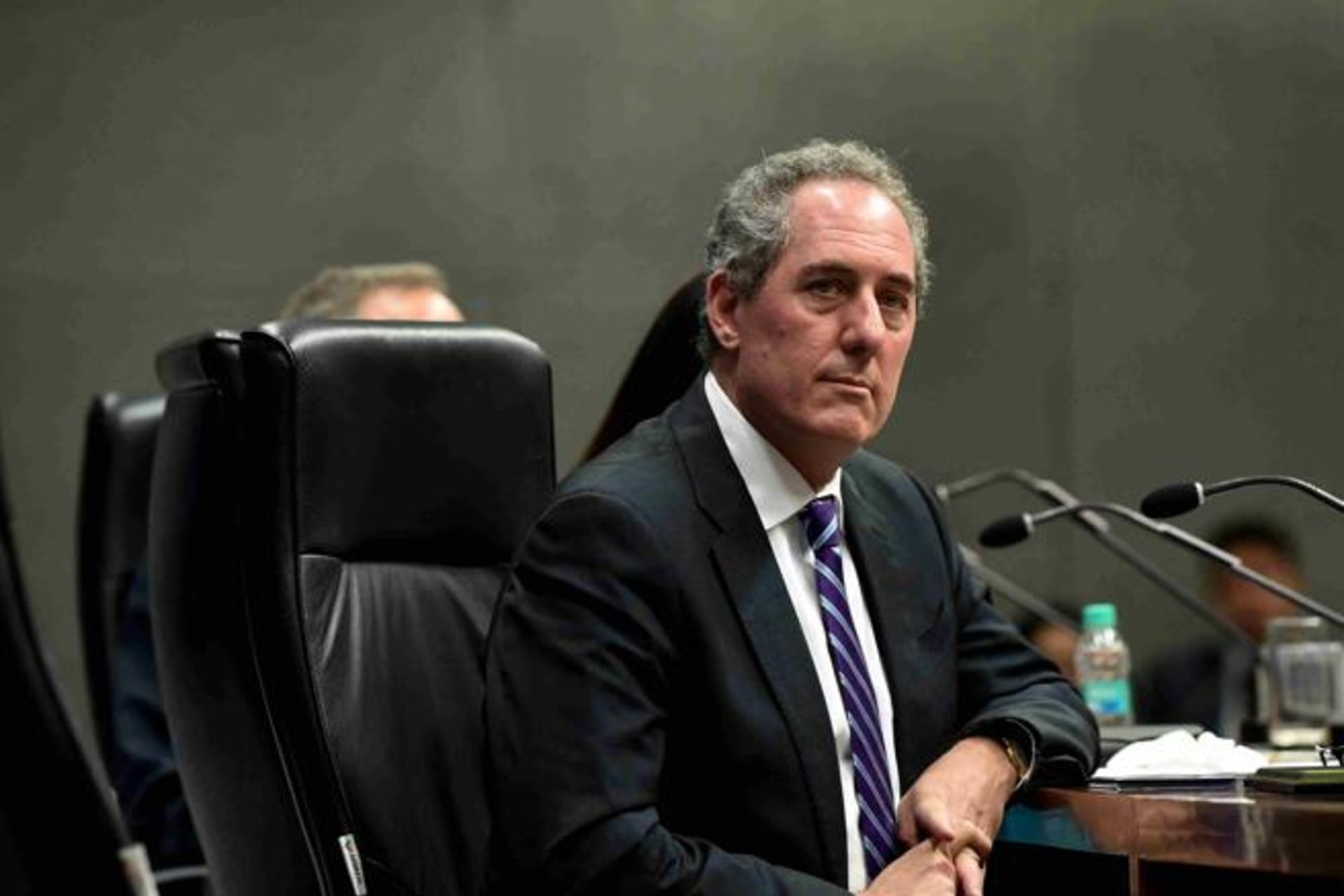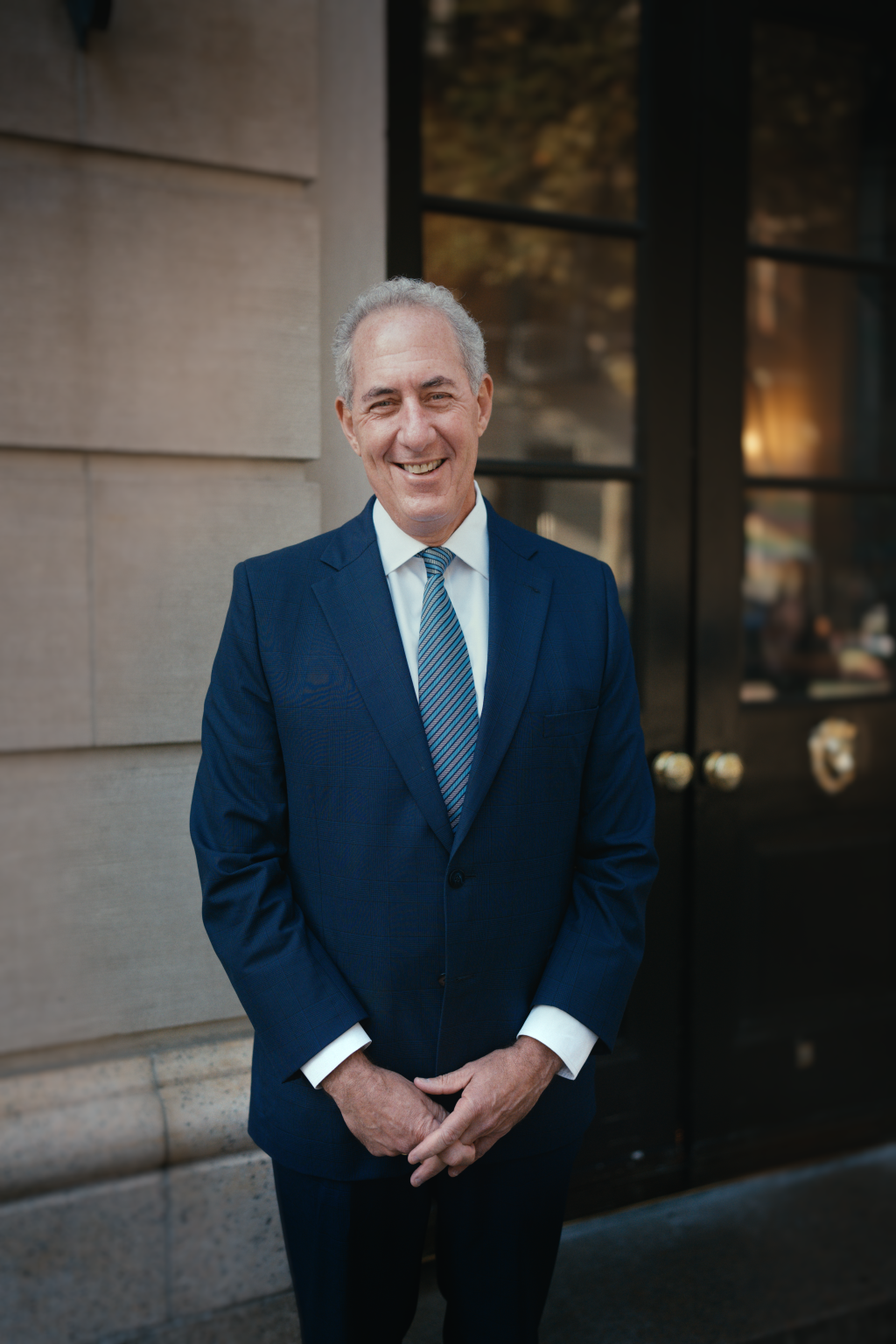Froman: “Aid for Ukraine? The majority of Americans are in favor. .. eventually we will succeed.“
Originally published at Corriere della Sera

Europe is looking at how domestic political issues in America are affecting aid to Ukraine, and is itself divided on this issue: Is it possible that the US will stop funding Ukraine?
“Our political system is such right now that even though the vast majority of the American public and I think the vast majority of both parties in Congress support aid for Ukraine, it can still be difficult to get a bill passed to reflect that, because of a small minority and because of the vulnerabilities of the Speaker of the House…” says Michael Froman, the new President of the Council on Foreign Relations. “I think it’s important to have a dialogue with our friends abroad and for them to understand that the country is still supportive of Ukraine. We have to work through these political processes but I think at the end of the day we’ll get there.”
In the end then, do you think the aid will come, as the Biden administration is insisting?
“I think so.”
Ambassador Froman has worked both in government and business. He was the US Representative for Trade from 2013 to 2017 in the Obama administration, and has since served as Vice President and Director of Strategic Growth for Mastercard. We met him at the headquarters of the prestigious American think tank in Manhattan, and we asked him how he views the role of the Council on Foreign Relations.
“I think we are facing perhaps the most complex international environment in 75 plus years, Froman says. The Cold War lasted for more than 40 years, and the post-Cold War period lasted about 30, and now we are in a third period that is as-yet undefined. And as a result, I think there’s a very important role for institutions like the Council on Foreign Relations to play to bring non-partisan fact-based independent analysis to this set of new questions that are being presented. We’ve got more difficult transnational issues than ever before: whether it’s climate change or pandemics, or many issues around emerging technologies. There is the rise of developing countries in emerging markets, and new groupings of countries getting together such as BRICs plus. We can facilitate international cooperation to address these challenges at a time of increasing fragmentation, to be a platform for speakers from around the world through our magazine, publications, books, educational materials, support for community leaders, journalists, and political and religious leaders. And we can engage abroad through the Council of Councils, a group of 28 think tanks from around the world.”
Do you think that it’s possible that -after the end of this conflict between Israel and Hamas- a two-state solution will be reached?
“You can envisage a scenario in which, when this conflict is over, politics in Israel, as well as the politics in the Palestinian community and in the Arab world leads people to be more open to what needs to be done for a two-state solution with credibility. But you can also imagine a scenario in which it’s hard for any Israeli to sit down and discuss compromising with the Palestinians. There is also a lot of uncertainty about whether or not there is sufficient leadership on the Palestinian or sufficient leadership with the support of other Arab countries to make it work.. We don’t know today which of these scenarios will become reality. On the one hand, this conflict has obviously highlighted that you cannot ignore or put on the back-burner the fundamental issues for there to be true peace and security in the region. On the other hand, this conflict just underscores the complexities of the problem: Hamas does not want a two-state solution, but a solution “from the river to the sea” that does not involve Israel. It is a very difficult environment in which to envisage a compromise. It is a challenge that has manifested itself for 70-75 years in various ways, and it’s a challenge that all parties will have to deal with when the conflict is over. But there is also a more immediate question I think: what happens to Gaza itself when the military campaign I over? Who’s going to govern? Will there be an Israeli occupation? Is there a credible option that involves extending the authority of the Palestinian Authority from the West Bank to Gaza? Is there a scenario where neighboring Arab countries are involved? Will there be a UN mandate? There are various reasons why all of these are terrible ideas. The challenge is that, at this point, we don’t even know how the short-term issues will be resolved.“
To read the full interview with Ambassador Froman, please click this link to Corriere della Sera.
